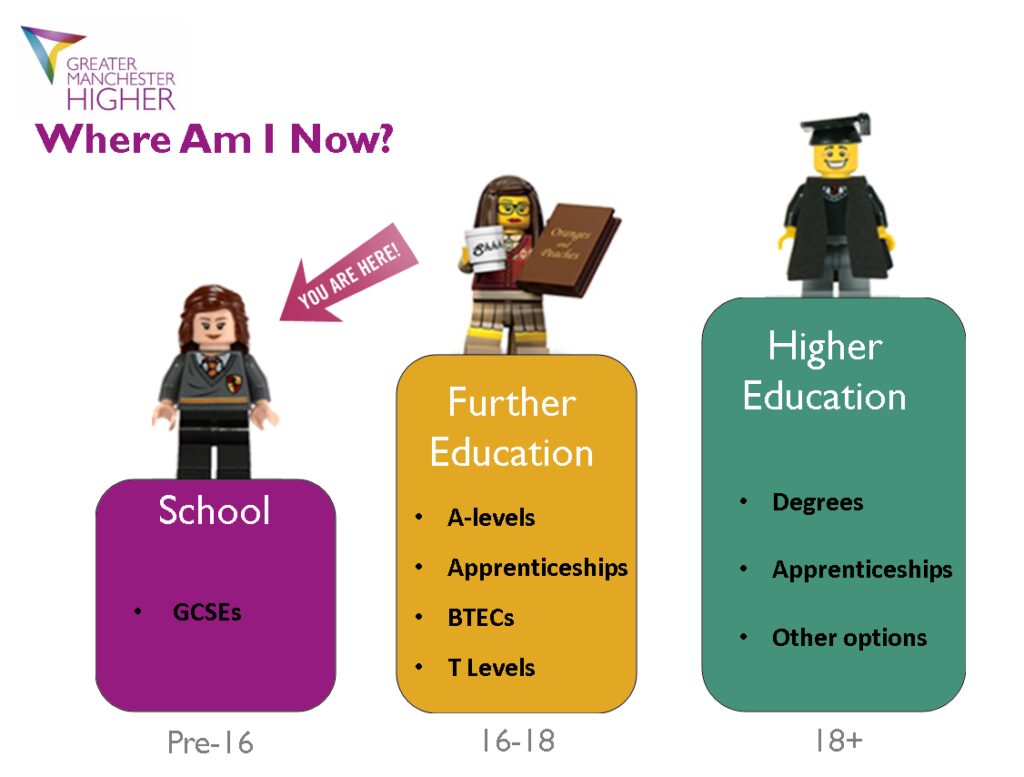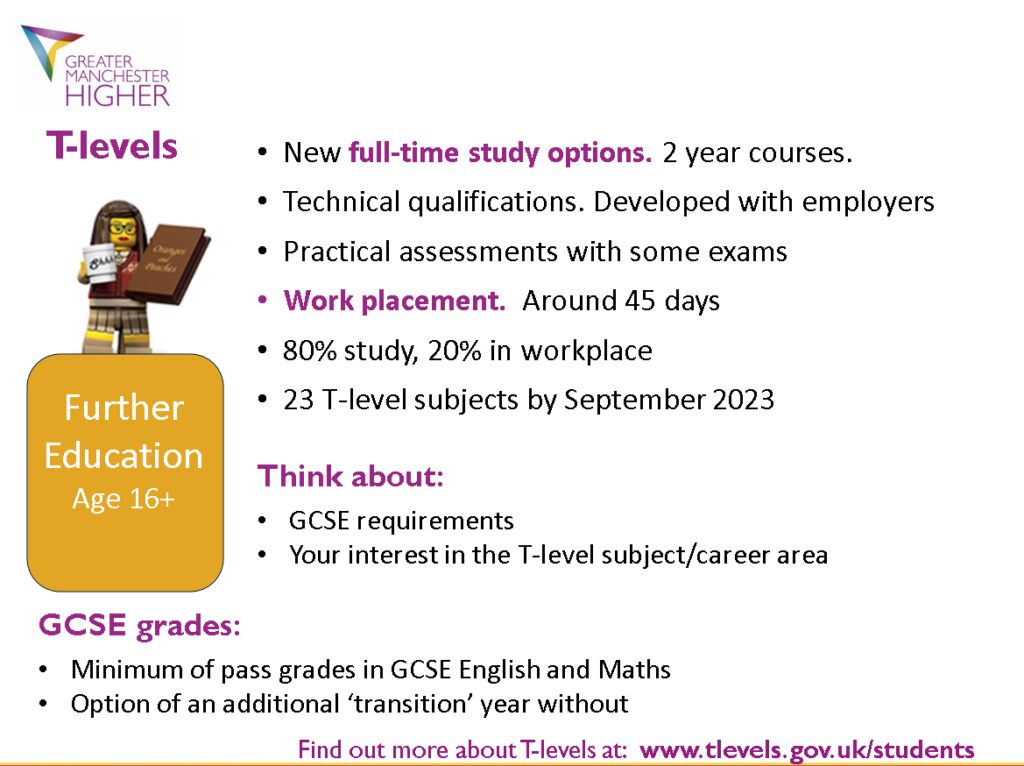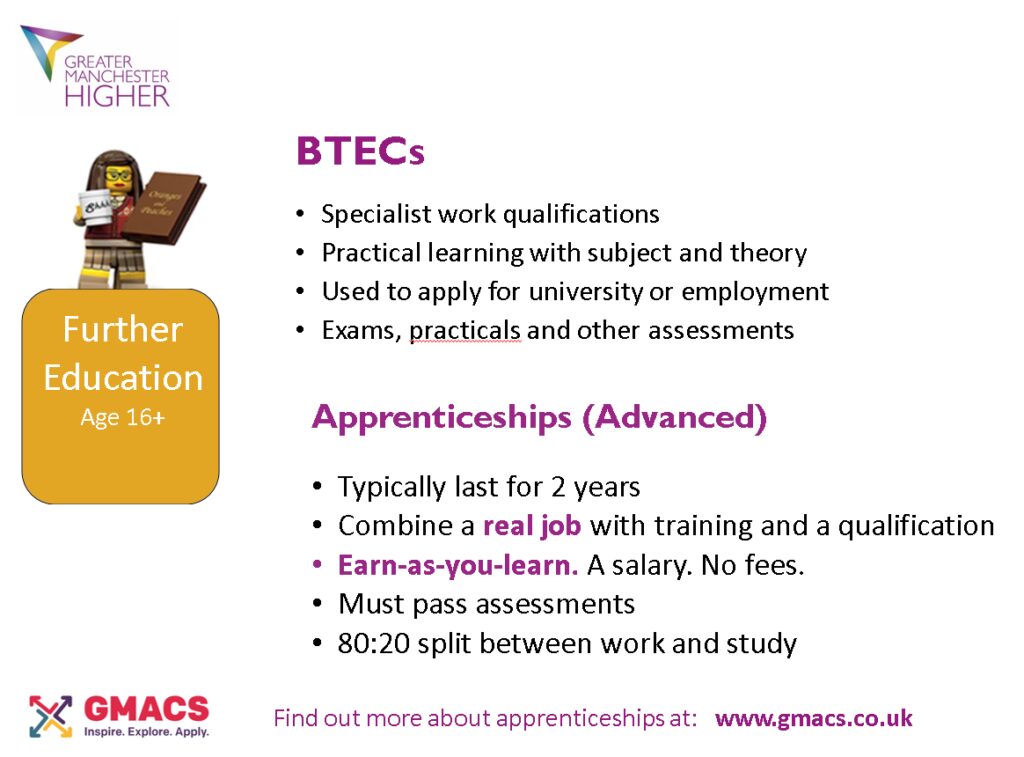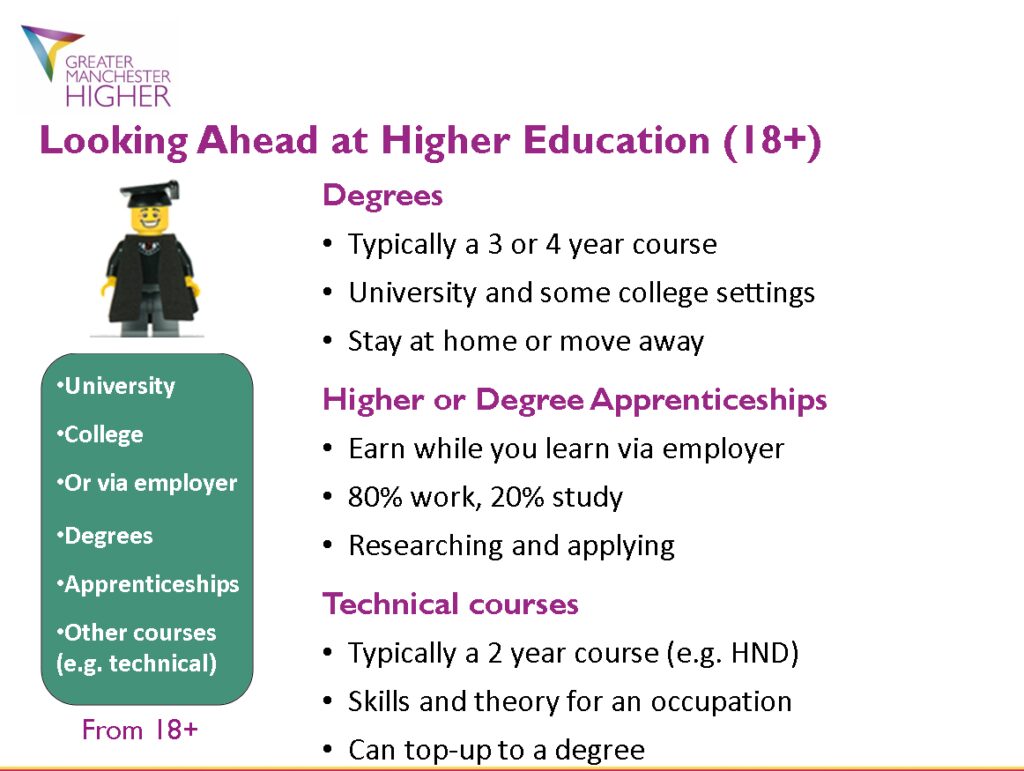- Staff
- Students
- Parents
- Careers Education
- E-Safety
- Lettings
- Translate
Post 16 and 18 Academic Routes

A Levels can lead to university. University degrees are easily recognised and highly regarded by perspective employers, more often than not job specifications will require specific academic standards of applicants (e.g., a degree at 2:1 or above) which are simpler to demonstrate for those who have taken the academic route, although technically many vocational courses should be considered as “equivalent” to A-levels or degrees.

T Levels are new courses, which follow GCSEs and will be equivalent to 3 A levels. These 2-year courses have been developed in collaboration with employers and businesses so that the content meets the needs of industry and prepares students for work. They will provide the knowledge and experience needed to open the door into skilled employment, further study or a higher apprenticeship. There will be a large range of courses on offer, including Finance, Accountancy, Media, broadcast and production.
The traditional academic route involves taking A Levels (usually 3 or 4) and these can include subjects that you are already aware of (like History, Music or English) but also subjects you may be less familiar with like Psychology, Sociology and Geology.

Apprenticeships
An apprenticeship is a real job available to individuals aged over 16; apprentices are typically employed for at least 30 hours per week. There are thousands of apprenticeships in more than 170 industries Apprenticeships last a minimum of 12 months. Most apprenticeships take between 1 – 4 years to complete; it will depend on the level and delivery model of the apprenticeship. Apprenticeships range from level 2 to level 7. There are apprenticeships at levels equivalent to GCSEs right up to Master’s level and you can now achieve a degree through an apprenticeship. All apprenticeship costs are paid for by the employer and/or the government meaning that an apprentice will never have to pay for their training. The equivalent of 6 hours per week of an apprentice’s paid time will be spent undertaking off-the-job learning, gaining valuable skills and qualifications. Apprentices are paid a salary; all apprentices will earn a salary of at least the National Minimum Wage.

Degrees from UK-based universities are internationally recognised as top class (in fact four of the top six universities in the world are here in the UK), which will help graduates later in life, especially if they want to work abroad.
University is a unique experience, one that many people feel is a life stage or rite of passage: lasting memories, life-long friendships and academic achievement are all extremely desirable. Academic study will hone analytic and debating skills, written communication skills and in-depth knowledge, as well as ability to retain and relay information, which will be valuable in the workplace.
There are many jobs that require at least a degree level qualification. Here are some examples:
Engineering; Medicine, nursing, dentistry and related fields; Sciences; Veterinary science; Accountancy; Advertising, public relations and marketing; Construction; Hospitality and travel management; Human resources; Investment banking; Investment management; IT; Law; Management consulting; Property; Publishing and media; Retail banking, insurance and actuarial; Sales; Supply chain and logistics; Teaching.
